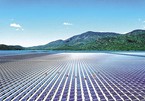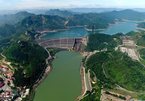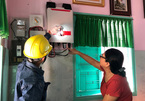 |
The whole country has 2,605 key energy consumers, 108 more than the numberpublished last year.
They include 2,111industrial producers, 73 transportcompanies, and 410 public works.
The annual list was issued following Decision No 1469/QD-Ttg signed by DeputyPrime Minister Trinh Dinh Dung on October 28.
Under the law on Economical and Efficient Use of Energy, a key energy consumeris defined as an industrial producer, agricultural producer, transport company thatconsumes at least 1,000 tonnes of oil equivalent (TOE) each year; and publicworks such as office building, hospital, hotel, supermarket and shopping centreconsume at least 500 tonnes of TOE annually.
Dung told the Ministry of Industry and Trade to work with relevant agencies tomanage the energy consumption of key energy consumers to comply with the law.
A key energy user has to implement a five-year plan on economical and efficientuse of energy in line with its production and business plan as well as reportthe results to authorized agencies.
It is also required to establish a regime of taking responsibility of bothindividuals and collectives for following the law. The key energy user must usean energy management model under the ministry’s instructions.
The Deputy PM assigned the ministry to work with local administrations inprovinces and cities to update the list every year and send a report so the Governmentcould publish it before March 31 each year.
The country has implemented the Vietnam National Energy Efficiency Programmeand achieved encouraging results.
The programme’s phase 1 in 2006-2010 and phase 2 in 2012-2015 had helped saving2-4 percent and 5.56 percent, equivalent to 4.9 million and 11.2 million TOE.
Under the programme’s phase 3 in 2019-2030, the country targets to reduceenergy consumption by 8-10 percent during the period./. VNA

Change of direction for VN solar industry
The country’s feed-in tariff has supported a boom for Vietnam’s solar sector, but now the Ministry of Industry and Trade proposes a rate reduction in order avoid solar projects becoming a victim of their own success.

Experts suggest building solar power plants on reservoirs
Some experts have proposed developing solar power projects on hydropower reservoirs to take full advantage of water surfaces, reported the Sai Gon Giai Phong Online website.

Households still waiting for rooftop solar power price approval
Many households and enterprises in Vietnam have proposed continuing the solar power purchasing price at 9.35 cent per kwh, as applied before June 30.
 Hanoi and Ho Chi Minh City have the largest numbers of key energy consumers, with 247 in the capital and 311 in the southern metropolis.
Hanoi and Ho Chi Minh City have the largest numbers of key energy consumers, with 247 in the capital and 311 in the southern metropolis.